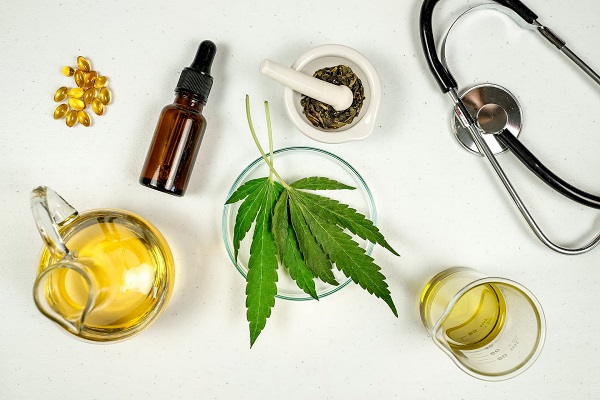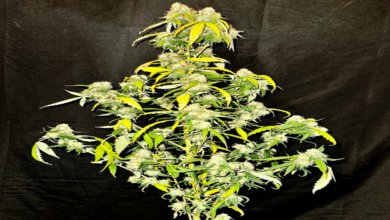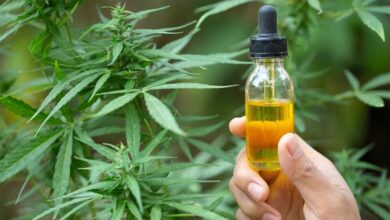
Cannabidiol, also called CBD, is an extract of the cannabis plant that is blended with a carrier oil to produce CBD oil. In states that have legalized recreational and medical cannabis, there are ranges of high CBD strains of cannabis that you can buy at your regional dispensary.
CBD products are normally extracted from hemp rather than cannabis because they have more amounts of CBD as opposed to the bigger amounts of Δ9-tetrahydrocannabinol (THC) that are found in cannabis. To extract CBD oil from hemp or the cannabis plant, a CBD extraction device is required for. Solvents such as ethanol are also used in this process. New extraction approaches for CBD oil, such as supercritical CO ₂, are now offered and make cleaner, more refined CBD products. This is because it balances the temperature and pressures of the plant throughout the extraction, eliminating the need for solvents.
Therapeutic Potential of CBD Oil
Many doctors and users of holistic and all alternative medicine trust in the therapeutic element of CBD as an alternative medicine to reduce many symptoms to ease or play a possible work in the list below conditions, according to the World Health Organization (WHO): “nausea or vomiting, inflammatory bowel and Crohn’s disease, anxiety, stress, psychosis, cancer, neuropathic pain, asthma, Alzheimer’s disease, Parkinson’s disease, rheumatoid arthritis, inflammatory disease, multiple sclerosis, cardiovascular diseases, diabetic difficulties, and infection.”.
CBD is normally well-tolerated and has a good safety profile. Significant research from the scientific community continuously evaluates the medicinal benefits of CBD. More research needs to be done to show the performance and long-lasting effects of this medicine.
The WHO reported in 2017 that no “public health associated problems” have been connected to the use of pure CBD. The report concludes, “In humans, CBD shows no effects indicative of any abuse or dependence potential.” CBD is a normally safe alternative treatment, as long as you consult your doctor to ensure that CBD won’t disrupt your other medicines.
What Is the Difference Between CBD and THC?
Δ9-tetrahydrocannabinol (THC) is a chemical part that triggers the intoxicating effects of the cannabis plant. However, high-CBD and low-THC strains of cannabis do not produce drowsiness, yet use the ability to ease many disorders consisting of seizures.
What Are Cannabinoids?
Cannabinoids are chemical compounds that naturally occur in the cannabis plant. Cannabis consists of around 150 cannabinoids; the two key and most preferred cannabinoids are THC and CBD. As cannabis study involves, we are learning more about other cannabinoids like cannabigerol (CBG), cannabinol (CBN), and cannabichromene (CBC). These natural cannabinoids can play a significant role in the endocannabinoid system, a system of the body that was not in the limelight till and is still being discovered.
The Endocannabinoid System
Although it is one of the oldest biological systems of the human body, you may have never heard of the endocannabinoid system. Our bodies come equipped with this whole system that is responsible for managing a wide range of physical procedures. The endocannabinoid system, or ECS for short, is a map of cannabinoid receptors situated throughout the body.
The function of the endocannabinoid system is to control a range of physical functions such as mood, memory, fertility, cravings, hormones, responses to pain or stress, and anxiety. In the long run, the ECS helps our bodies to maintain homeostasis or equilibrium.
The discovery of the cannabinoids found in the cannabis plant resulted in the naming of the ECS. “Since the moment when exogenous cannabinoids showed their presence, the whole natural complex came to be called the ‘endogenous cannabinoid system,’ or ‘endocannabinoid system’ (ECS),”. In simple words, endocannabinoids are the body’s natural endogenous cannabinoids. Endocannabinoids are neurotransmitters that activate the cannabinoid receptors of the ECS.
How Do Cannabinoids Interact With the ECS?
However, we additionally react to exogenous cannabinoids like those found in cannabis. Phytocannabinoids, “Phyto” meaning plant-derived cannabinoids, also connect to our receptors that initiate a physical action. Our receptors are the lock and cannabinoids are the secrets that unlock responses.
Recently, there are two known receptors in the ECS: CB1 and CB2. Both are dispersed around the body; however, CB1 receptors are mostly found in our brain and nerve system, while CB2 receptors are compressed in our organs and immune system. Each of both types of receptors is responsible for maintaining the order of our immune and nerve system features.
The Entourage Effect
There are hundreds of different types of natural compounds found in the cannabis plant. When consumed, all of these cannabinoids and other substances interact and create a complete, well-rounded impact known as the entourage effect. Today, the term is used to describe how chemical parts synergistically interact to produce exceptional effects and improve the cannabis experience.
So what else contributes to the entourage effect? There are 6 major cannabinoids:
Δ9-tetrahydrocannabinol (THC)
Cannabidiol (CBD)
Cannabigerol (CBG)
Cannabinol (CBN)
Cannabichromene (CBC)
Tetrahydrocannabivarin (THCV)
The last four are less preferred but are starting to get more attention. Terpenes are another component of the cannabis plant that create the aromas of strains and are thought to contribute to the entourage effect. Cannabis scientists mention that terpenes can raise the body’s rate of absorption of cannabinoids. The entourage effect, in other words, is the concept that CBD is improved by the other cannabinoids and substances discovered in cannabis and/or hemp-derived plant medication.
Is CBD Psychoactive?
CBD alone won’t create an intoxicating response or get you high. CBD can be used to neutralize the intoxicating effects of THC. However, it is important to note that CBD is technically psychoactive, meaning that it affects the brain.
CBD affects the brain in favorable ways like easing anxiety and stress, improving the state of mind, enhancing anxiety, and helping with sleep. These are a few of its health benefits. It is more extensively used for discomfort and inflammation. Some that are a lot more observant of their physiology might feel a refined uplift in their mood.
However, it will not be enough to cause a mind-altered state, or minimized cognition, fear, or anxiety-like THC can. CBD will not make you lose control and alter your behavior. Though, be aware that there are some threats relying on what products you utilize like supplements and drugs.



